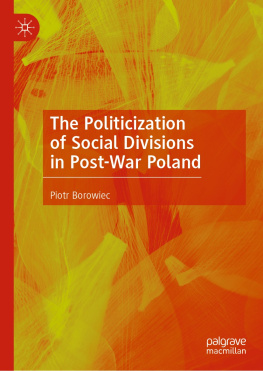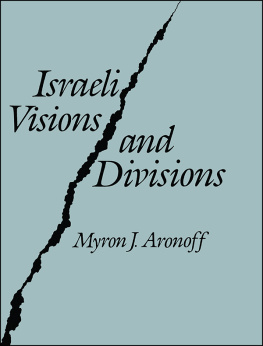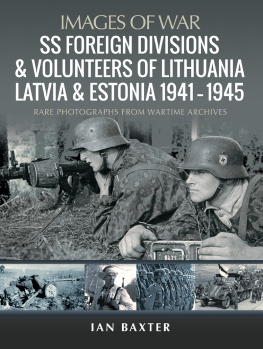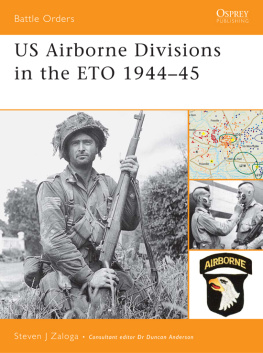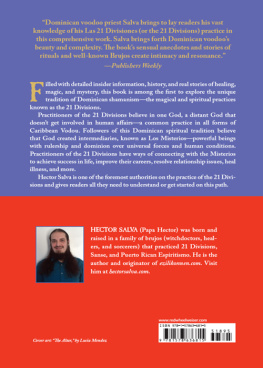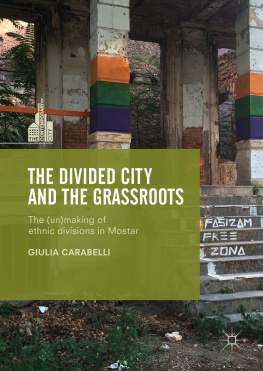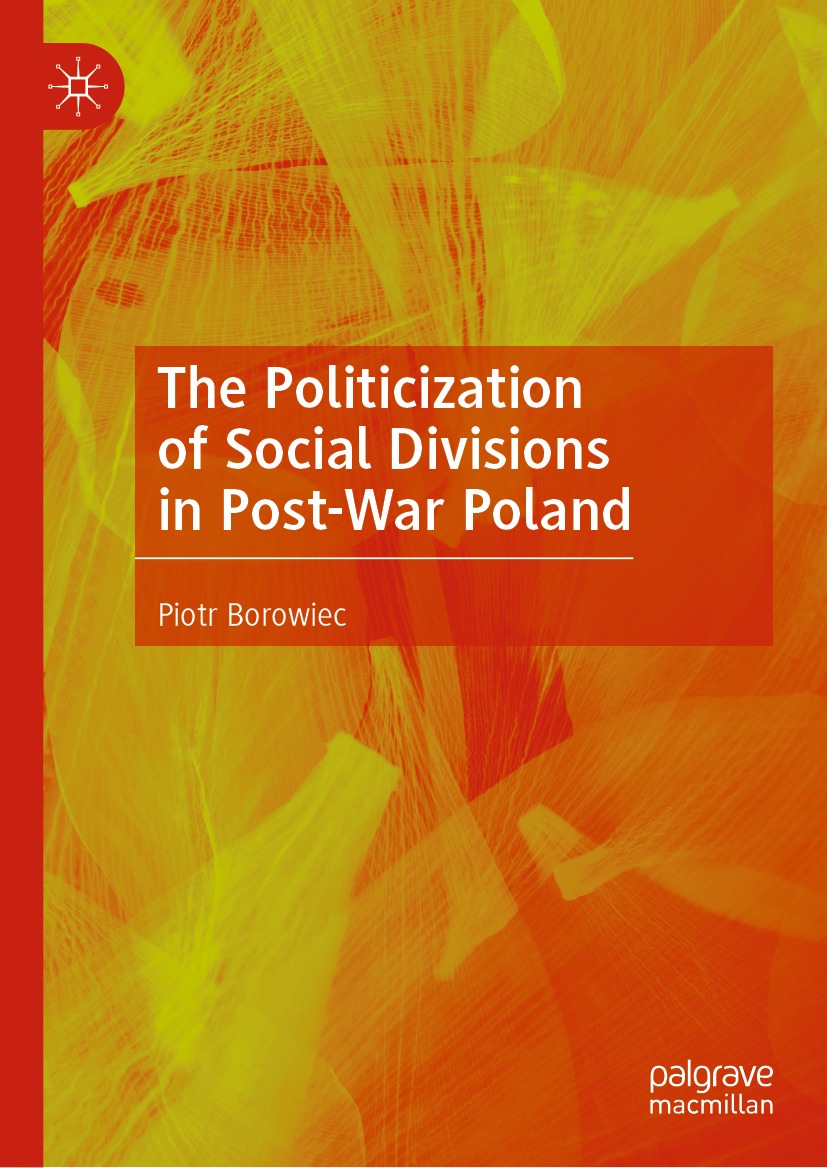Piotr Borowiec
Institute of Political Science and International Relations, Jagiellonian University, Krakw, Poland
ISBN 978-3-031-26529-7 e-ISBN 978-3-031-26530-3
https://doi.org/10.1007/978-3-031-26530-3
The Editor(s) (if applicable) and The Author(s), under exclusive license to Springer Nature Switzerland AG 2023
This work is subject to copyright. All rights are solely and exclusively licensed by the Publisher, whether the whole or part of the material is concerned, specifically the rights of translation, reprinting, reuse of illustrations, recitation, broadcasting, reproduction on microfilms or in any other physical way, and transmission or information storage and retrieval, electronic adaptation, computer software, or by similar or dissimilar methodology now known or hereafter developed.
The use of general descriptive names, registered names, trademarks, service marks, etc. in this publication does not imply, even in the absence of a specific statement, that such names are exempt from the relevant protective laws and regulations and therefore free for general use.
The publisher, the authors, and the editors are safe to assume that the advice and information in this book are believed to be true and accurate at the date of publication. Neither the publisher nor the authors or the editors give a warranty, expressed or implied, with respect to the material contained herein or for any errors or omissions that may have been made. The publisher remains neutral with regard to jurisdictional claims in published maps and institutional affiliations.
Cover illustration: Marina Lohrbach_shutterstock.com
This Palgrave Macmillan imprint is published by the registered company Springer Nature Switzerland AG
The registered company address is: Gewerbestrasse 11, 6330 Cham, Switzerland
Acknowledgements
Many people contributed to my writing of this book, including my colleagues from the Institute of Political Science and International Relations at the Jagiellonian University in Krakw. I would like to thank all of them. In particular, I would like to extend my gratitude to Piotr Obacz, Ph.D., for the inspiration provided by his monograph entitled Podzia Polska solidarnaPolska liberalna w wietle wybranych koncepcji pluralizmu politycznego. (2018). It helped me consider many issues related to divisions. Even if I provide different answers to some of the questions he asked, they would not have been formulated had it not been for his paper. I would also like to thank the students of the Political Studies Faculty of the Jagiellonian University, to whom I presented an approach to social divisions and the theory of practices of repartition during political sociology lectures. I am profoundly thankful to them for their critique, patience and inquisitiveness.
Krakw, Poland
December 2022
Piotr Borowiec
Abbreviations
CBOS
Centrum Badania Opinii SpoecznejCentre for Public Opinion Research
GUS
Gwny Urzd StatystycznyCentral Statistical Office
KPN
Konfederacja Polski NiepodlegejThe Confederation of Independent Poland
PGR
PastwoweGospodarstwo RolneState Agricultural Farm
PKWN
Polski Komitet Wyzwolenia NarodowegoPolish Committee of National Liberation
PPR
Polska Partia RobotniczaPolish Workers Party
PPS
Polska Partia SocjalistycznaPolish Socialist Party
PRL
Polska Rzeczpospolita LudowaPolish Peoples Republic
PZPR
Polska Zjednoczona Partia RobotniczaPolish United Workers Party
RP
Rzeczpospolita PolskaThe Republic of Poland
SLD
Sojusz Lewicy DemokratycznejThe Democratic Left Alliance
UB
Urzd BezpieczestwaSecurity Office
UE
Unia EuropejskaEuropean Union
ZMP
Zwizek Modziey PolskiejUnion of Polish Youth
Contents
The Author(s), under exclusive license to Springer Nature Switzerland AG 2023
P. Borowiec The Politicization of Social Divisions in Post-War Poland https://doi.org/10.1007/978-3-031-26530-3_1
1. Introduction
Piotr Borowiec
(1)
Institute of Political Science and International Relations, Jagiellonian University, Krakw, Poland
Keywords
Introduction Social divisions Practice of repartition
Two observations formed the basis of my interest in the formation and politicization of social divisions in Poland. Both are seemingly different and perhaps exceptionally trivial but, in practice, they are related to each other, inspire me and bring about scientific research.
The first consisted in me realising my growing irritation caused by another passionate statement of a certain public opinion leader in the media, claiming that Polish society was deeply divided in half and that this caused negative consequences suffered, in particular, by the author of these words and which were unbearable for him. He considered those divisions and splits to be a burden weighing him down and leading to his permanent discomfort of living. His additional words did not lead to anything sensible. Often, he was not even able to define the sides of this division, its genesis or the causes behind the formation of related distances, and yet he noticed it and made it socially significant, seemingly considering himself a messenger of some sort. In the later part of his argumentation, he warned against further divisions and condemned those causing divisions and fuelling the Polish-Polish war. As expected, he only counted politicians who did not share his worldview among the dividers. It was them who he considered the source of those divisions. He had no second thoughts about expressing his negative opinion of them. Elated, he was convinced that he was the truth-bearer, failing to notice that suddenly he joined the dividers (in reference to the notion above). He divided politicians into those who reportedly cause divisions due to employing dividing as a strategy and those who reportedly abstain from doing it (at least in his opinion). In other words, into those worthy and unworthy of trust, not equal to himself. Some he considered superior, others inferior. The whole of his statement showed disdain for politics, a wish for the need for unity and universal harmony, but built solely based on his own vision of order and proper livingwhich is an expectation that shocks with its totality and is partially a legacy of communism and its doctrine of moral and political unity (wida-Ziemba, , p. 291).
The second observation is related to a statement by Adam Michnik a person symbolic of the Polish fight for freedomfrom early 2015. It was a statement anchored in politics and practically opened that [politically important] year when presidential and parliamentary elections were held. Michnik made a division into an authoritarian Poland wanting to build a police state, and a democratic Poland (Adam, ). The above statement is clearly significant because both Michnik and the circles centred around him were reluctant to employ such polarisations. It cannot be interpreted only as a mechanical attempt at supporting one of the parties to a political dispute with his own authority and, therefore, as an instrumental and demagogic strategy. It would constitute a simplification unfair to the source of this concept, very likely untrue. Therefore, there must be something more in those dichotomous, discursive juxtapositionshereinafter referred to as practices of repartition.

